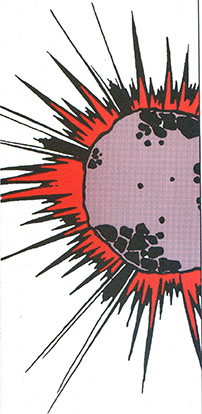This book review appears in the current issue of Perspectives on Anarchist Theory (N. 29, on anarcha-feminisms) available here, from AK Press.
Too often I find myself giving into the urgency of organizing, of how this struggle now takes priority over pausing, imagining, reorganizing, reorienting, creating and recreating new worlds, new ways of relating. Of course organizers everywhere are also, everyday, creating many other worlds within this one, but too often it feels as though what takes center-stage in our struggles are the analyses, critiques, and (of course) the too many, too long meetings that stand in for building something different. Spaces for risky, non-utilitarian creativity and inspiration are too often sidelined as inessential. Maybe the appearance of two sci fi books (both from radical presses whose mainstays are political non-fiction) suggests that sci fi is resurfacing as a relevant touchstone for contemporary political movements, signaling perhaps a bit more recognition of creative expression in explicitly political spaces. What exactly is the connection between sci-fi and radical movements and organizing? This question (and some ideas about how to answer it) emerged for me while reading these two humbling anthologies, which I’ll get to in a moment, but first, a little more about these books.

While Octavia’s Brood (2015, AK Press/IAS) and Sisters of the Revolution (2015, PM Press) appear initially as similar offerings from similar presses, their differences are quite profound. While both are compilations of overtly politically-engaged sci fi, the only near-overlap of content is that Sisters of the Revolution includes a brilliant story (one of the strongest in the collection) from the other book’s namesake, Octavia Butler. Beyond this, they both specifically include writers ‘on the margins’ of mainstream science fiction; in this way, many of the stories in each could be included in the other. The likening of one to the other is otherwise quite superficial, however, as the spirits that animate each anthology as a whole are clearly very different. Sisters is an historical compilation of pieces identified as “feminist speculative fiction” by its editors, Ann and Jeff VanderMeer, and seeks to bolster a feminist archive of science fiction, whereas Brood is “visionary fiction,” highly cultural production emerging from and meant to feedback into contemporary social justice struggles. Taken each as collections, they each task science fiction with a different function in contemporary politics, and in doing so fill very different niches, and leave the reader with different orientations towards social change and how it happens.
The Impossible Dream: A Review of Kim Stanley Robinson’s The Ministry for the Future
George Katsiaficas
Science fiction writer Kim Stanley Robinson has been hailed as “one of the world’s finest working novelists” (The Guardian) and “one of the most important political writers working in America today” (The New Yorker). And for good reason. His prolific career includes his latest novel, … Read more

